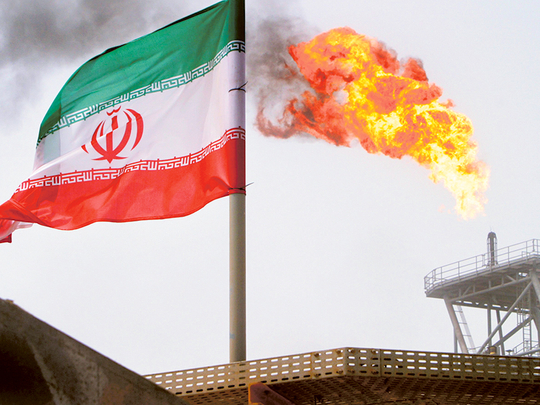
London: Iran hinted that it may soon drop its opposition to an oil production freeze, with a senior official saying the Organisation of the Petroleum Exporting Countries (Opec) member’s crude output is closing in on its pre-sanctions level and that limiting supply is “a political decision”.
Iran is pumping 3.8 million barrels a day, approaching its daily target of 4 million barrels, Mohsen Ghamsari, director of international affairs at the National Iranian Oil Co., said on Wednesday at a conference in Singapore. He said earlier in the week that Iran could reach its target in two to three months.
“Iran is close to the 4 million target, but the freeze is a political decision,” Ghamsari said. “We are now close to previous production levels, so now it depends on the minister’s decision,” he added referring to Oil Minister Bijan Namdar Zanganeh.
Members of Opec will hold talks with producers from outside the group including Russia during a conference in Algiers at the end of the month. Some ministers have called for an agreement to cap output in a joint effort to prop up crude prices amid a global glut. Saudi Arabia and Russia, the world’s top two crude-oil producers, pledged on Monday to cooperate to stabilise global markets, while failing to announce any specific measures to bolster prices.
A previous attempt to freeze output in April fell through when Saudi Arabia insisted that Iran join before its output had recovered to levels seen before world powers tightened sanctions on Iran’s economy.
Opec risks ‘crying wolf’ as oil trader Gunvor doubts accord
Singapore, London: One of the world’s biggest commodities traders doubts oil producers will be able to agree on curbing output to pull up prices.
While it’s “easier” to have talks on freezing supplies now than it was at a meeting in Doha earlier this year, a deal is unlikely at a gathering in Algiers later this month, said David Fyfe, Gunvor Group Ltd.’ s head of market research and analysis. Producers have pledged to discuss measures to help the market, but Saudi Arabia has said it sees no need to limit oil output and Russia expressed doubt that a cap is needed.
“There won’t be an agreement but it does no harm to keep talking about this because that itself is price supportive,” Fyfe said at the Asia Pacific Petroleum Conference in Singapore on Wednesday. “Of course, there’s a risk of crying wolf. But at some stage it’s the law of diminishing returns when you keep talking about a production agreement and not actually reach one.”
Crude has jumped more than 10 per cent since early August amid speculation that global producers will be able to reach an international agreement to cap output and shrink a global glut.
— Bloomberg












